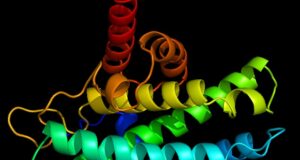
The results of a clinical trial led by researchers at the University of Arizona Health Sciences and published in the Journal of Clinical Oncology showed that chemotherapy combining three different types of drugs did not improve overall survival for patients with advanced stage, inoperable biliary tract cancers.
“Biliary tract cancer is comparatively rare, but it’s aggressive and spreads fast. Our accrual of more than 450 patients in a little more than two years really shows there is a need for new ways to help people with biliary tract cancer,” said Rachna Shroff, MD, the associate director of clinical investigations at the U of A Cancer Center and leader of the clinical trial that included researchers from 17 other cancer centers.
The two-drug regimen was the standard for over 10 years, and it’s not particularly effective. While there are some newer precision treatments that are helpful to a small segment of the overall population, we need more and better options for all patients.”
Rachna Shroff, MD, Professor and Chief, Division of Hematology and Oncology, Department of Medicine, University of Arizona
The study was the first Phase III clinical trial conducted entirely in the United States for newly diagnosed, advanced biliary tract cancer patients. Aaron Scott, MD, co-leader of the U of A Cancer Center Clinical and Translational Oncology Program and an associate professor at the U of A College of Medicine – Tucson, co-chaired the study and was a contributing author.
“Triplet chemotherapy has been shown to be somewhat effective in treating advanced and inoperable pancreatic and colorectal cancers,” said Shroff, a member of the BIO5 Institute. “We wondered if a similar approach to treating advanced and inoperable gall bladder and bile duct cancers could also lead to better outcomes. But we now have evidence that it may not work the same way in biliary tract cancers.”
The clinical trial included an analysis of data from 441 participants who were newly diagnosed with inoperable or metastatic biliary tract cancers. They were randomly assigned to either a two-drug regimen of gemcitabine and cisplatin or a triplet chemotherapy consisting of gemcitabine, cisplatin and albumin-bound paclitaxel.
“Comparing results from the two regimens showed no significant difference in the average length of time the patient survived after diagnosis with advanced, inoperable biliary tract cancer,” Shroff said. “Our research also indicates that the three-drug regimen may increase the toxicity of the treatment.”
Shroff noted that the three-drug regimen might still prove to be a viable option for patients with specific biliary tract cancers, such as gallbladder cancer, and for those whose cancer has not metastasized, as the response rates and survival outcomes were higher in these groups.
Ongoing analyses will involve identifying subsets of biliary cancer patients who may benefit from the three-drug regimen. Tissue and blood specimens collected from participants during the trial resulted in the largest repository of biliary cancer specimens in the United States.
Source:
Journal references:
Shroff, R. T., et al. (2025). SWOG S1815: A Phase III Randomized Trial of Gemcitabine, Cisplatin, and Nab-Paclitaxel Versus Gemcitabine and Cisplatin in Newly Diagnosed, Advanced Biliary Tract Cancers. Journal of Clinical Oncology. doi.org/10.1200/JCO-24-01383




